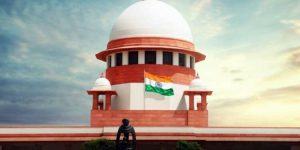Doctrine of Severability:

The Supreme Court clarified that the Doctrine of Severability is applicable in Suits for Specific Performance, but only in exceptional cases.
- It is a fundamental legal principle that plays a crucial role in addressing the constitutionality of laws when some provisions are inconsistent with the Fundamental Rights guaranteed by the Constitution.
- In such cases, only the conflicting or repugnant part of the law will be considered void by the courts, not the entire statute.
- In simpler terms, if a specific part of a law violates the Constitution but can be separated from the rest of the law without affecting its functionality, only that problematic part will be removed, not the entire law.
- Another aspect of the doctrine of severability is that if a law combines good and bad provisions using words like ‘and’ or ‘or,’ and the enforcement of the good provision does not depend on the bad one, they are considered severable.
- The good provision will be upheld and enforced even if the bad one cannot or does not exist.
- On the other hand, if there’s a provision that can be used for both legal and illegal purposes, it is invalid and cannot be allowed even for legal purposes.
- The court will declare the entire Act as void if the valid and invalid portions are so intertwined that they cannot be separated.
- It is also called the doctrine of separability.




